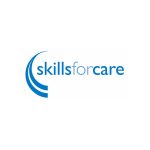Contrary to popular belief, you do not need to have a clinical degree or A-Levels to start your career in health or care. All that matters is that you develop the skills, values, behaviours, and knowledge that employers need.
No GCSEs? Don’t worry.
Most entry-level roles require you to have either a specific qualification or the equivalent experience. Many of us develop the soft skills required to be successful in employment through everyday life – whether caring for a family member, playing team sports, resolving conflicts, learning how to manage your schedule and prioritise your workload, through to running a household or studying.
Even if you do not have GCSEs, you can be successful in an application by showing skills and competence in the other areas required (understanding of confidentiality, ability to demonstrate NHS values, demonstrate your understanding of equality, diversity and inclusion.) If you can demonstrate an ability to learn and a passion for the role, you can be supported to gain your maths and English Level 2 functional skills once you are in employment.
Alternatively, you can gain a qualification in functional skills for maths and English before you apply, or whilst you undertake a Level 2 apprenticeship (which is equivalent to GCSE Grade 4/C standard.) This way, you can earn while you learn, develop skills and a qualification, and there will often be a job available once you complete your apprenticeship.
The care certificate
The Care certificate aims to equip health and social care support workers, including healthcare assistants, assistant practitioners, and trainee nursing associates with the knowledge and skills which they need to provide safe and compassionate care.
To do this, individuals will need to complete the care certificate within the first 12 weeks of beginning the process and meet all of the 15 Care Certificate standards.
Skills for Care
If you are interested in a care role, visit the Skills for Care website to learn how you can grow the right skills to deliver the highest quality care.
T-Levels
T-Levels in health, science, and other areas (such as digital, business and administration or catering and hospitality) are also a great option. They are equivalent to 3 A-Levels and you will spend time on placement so that you can experience a real healthcare environment and learn from those already working in the industry.

